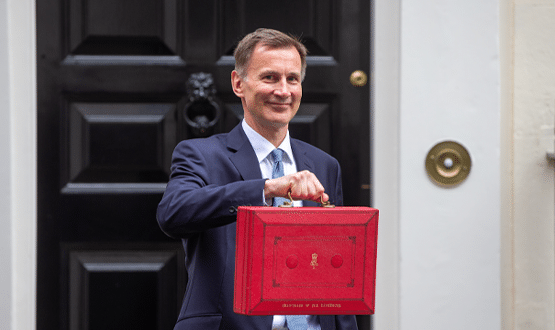Hunt reveals revised breast cancer IT scandal figures
- 5 June 2018

The number of women who may have had their lives shortened due to an IT error affecting the breast cancer screening programme is now estimated to be ‘fewer than 75’ rather than the initially-cited 270.
In a written statement to MPs on 4 June, Jeremy Hunt said further analysis by Public Health England (PHE), which used NHS Digital data, showed that 174,000 women missed out on their final routine breast cancer screening invitation with 130,000 confirmed to still be alive.
The health and social care secretary said: “As a result, the numbers who may have had their lives shortened as a result of missing their screening is now estimated to be fewer than 75.
“While this figure is lower than the original estimates given in my [original] statement, this does not lessen the devasting impact that this has had on some people’s lives.”
All women aged 50 to 70 who are registered with a GP are automatically invited for breast cancer screening every three years as part of the programme, which is run by PHE.
Hunt told MPs on 2 May that a “computer algorithm failure”, which dated back to 2009, meant a group of women were not sent invitations before their 71st birthday for routine breast screening. Original estimates suggested up to 270 women may have had their lives cut short as a result.
In this week’s statement, Hunt confirmed that PHE had successfully contacted the 195,565 women who had missed their final screening to offer an additional screen.
He said that as of 1 June, 26,774 of those women have received a screening appointment with “hundreds already screened” while more than 46,000 calls have been made to a dedicated helpline which was set up in response.
Hunt said an additional 68,000 extra screening appointments have been made by the NHS which means it is “on track” to ensure affected women who want a screen can receive it by October 2018.
The written statement also included more details of the “robust and thorough review” Hunt has promised so as understand exactly what went wrong.
The independent review, which is due to report back by November 2018, will be co-chaired by Lynda Thomas, Macmillan Cancer Support chief executive, and Martin Gore, consultant medical oncologist and professor of cancer medicine at the Royal Marsden.
Peter Wyman, chair of the Care Quality Commission, will serve as vice-chair.
The review will seek to:
- Understand the reason/s certain cohorts of women were not called for a final screen
- Identify why the problems were not detected earlier, including whether there were missed opportunities to identify and rectify the failure earlier
- Assess the governance, assurance and accountability processes
- Understand the clinical implications for the affected population as a whole
- Establish how the issue came to light, and the handling and escalation progress in 2018
Hunt concluded: “Our cancer screening programme is widely recognised as world-leading, but on this occasion a number of women have been let down.
“It is now clear that this may have resulted in significant harm for a small number of women, while thousands more have faced unnecessary distress and anxiety as they waited to hear if they have been affected.
“I would like to repeat my wholehearted and unreserved apology to the women affected and their families – and above all reassure them that we are working hard to understand what went wrong and what we need to do to stop similar incidents from happening in the future.”




3 Comments
Surely this is the big PR disaster for both PHE and the government? How could Hunt have made the first statement to Parliament before someone had worked through the numbers and were sure how many women were affected? Should Duncan Selby’s position not be threatened?
I’m just trying to imagine what Malcolm Tucker would have said and done to those responsible.
apologies, that should read condition, not condicated, where is the spell cheker ;
in order to provide an efficient service which can provide quality DATA for research, a person pathway should be instantiated as soon as a medical condicated has been diagnosed or just suspected
Comments are closed.